About the F.G. Houtermans Award
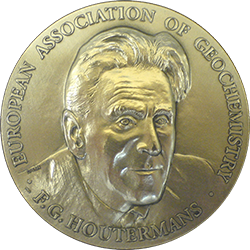 The F.G. Houtermans award is bestowed annually by the EAG in recognition of exceptional contributions to geochemistry by an early career scientist. It is named in honor of Friedrich Georg Houtermans, a Dutch-Austrian-German physicist.
The F.G. Houtermans award is bestowed annually by the EAG in recognition of exceptional contributions to geochemistry by an early career scientist. It is named in honor of Friedrich Georg Houtermans, a Dutch-Austrian-German physicist.
To be eligible, nominees must be within 12 years equivalent full time employment (in an academic environment) from the commencement of their PhD, which must be completed.
Eligibility is determined by the status of the candidate at the close of the year in which nominations are received and not the year the award is presented; hence, for the 2024 F.G. Houtermans Award, candidates should have started their PhD in 2011 at the earliest (but see information on career breaks here).
Nominations of underrepresented groups are encouraged.
We are committed to promoting the diversity of our awardees, to recognizing a wide range of different types of exceptional contribution, and we acknowledge the different career paths that lead to the achievement of such contributions.
The award is presented annually at the Goldschmidt Conference. The award consists of an engraved medal, an honorarium (1000 Euros) and a certificate.
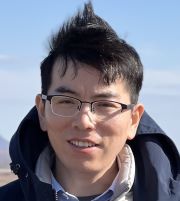 Recipient of the 2024 Houtermans Award:
Recipient of the 2024 Houtermans Award:
Feifei Zhang
Nanjing University, China
Feifei Zhang is recognized for his important contributions to analysis of biosphere-environment co-evolution based on non-traditional isotopes (Fe, U, Li, Ca, Ba, Tl) combined with numerical modeling. His doctoral research helped to establish the carbonate U-isotope proxy as a global-ocean redox indicator, opening new avenues of research in paleoceanographic studies. His more recent work has focused on development of isotopic proxies for continental weathering, marine productivity, and ocean acidification. Read more
The 2024 Houtermans Award Lecture will bepresented at the Goldschmidt2024 Conference in Chicago, USA, in August 2024.
Former recipients of the Houtermans Award
- 2023 Ming Tang, Peking University, China – Citation by William McDonough with Acceptance and Award Lecture by Ming Tang
- 2022 Raffaella Demichelis, Curtin University, Australia – Citation by Andrew Putnis and Acceptance by Raffaella Demichelis
- 2021 Paolo Sossi, ETH Zürich, Switzerland – Citation (video) by Hugh O’Neill and Frédéric Moynier and Acceptance (video) by Paolo Sossi
- 2020 Kun Wang, Washington University in St. Louis, USA – Citation by Frédéric Moynier and Acceptance by Kun Wang
- 2019 Stefan Lalonde, CNRS / Institut Universitaire Européen de la Mer, France – Citation by Kurt Konhauser
- 2018 Morgan Schaller, Rensselaer Polytechnic Institute, USA
- 2017 Julie Prytulak, Imperial College London, UK
- 2016 Kate Hendry, University of Bristol, UK
- 2015 Caroline L. Peacock, University of Leeds, UK
- 2014 Liping Qin, University of Science and Technology of China
- 2013 James Day, Scripps Institution of Oceanography, USA
- 2012 Frédéric Moynier, Washington University in St. Louis, USA
- 2011 Maud Boyet, University of Clermont-Ferrand, France
- 2010 Karim Benzerara, University Pierre et Marie Curie, France
- 2009 Nathan Yee, Rutgers University, New Jersey, USA
- 2008 Nicolas Dauphas, University of Chicago, USA
- 2007 Steve Parman, Brown University, USA
- 2006 James Badro, Institut de Physique du Globe, France
- 2005 Mark E. Hodson, University of York, UK
- 2004 Albert Galy, University of Cambridge, UK
- 2003 Jess F. Adkins, California Institute of Technology, USA
- 2000 Gleb Pokrovski, Geosciences Environnement Toulouse
- 1999 Eric Hauri, Carnegie Institute, USA
- 1998 Terry Plank, Columbia University, USA
- 1997 Ken Farley, Caltech, USA
- 1995 Marc Chaussidon, CNRS Nancy, France
- 1990 Michel Condomines, Geosciences Montpellier, France


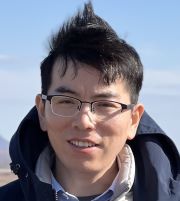 Feifei Zhang, Nanjing University, China
Feifei Zhang, Nanjing University, China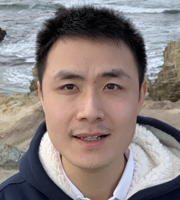 Ming Tang, Peking University, China
Ming Tang, Peking University, China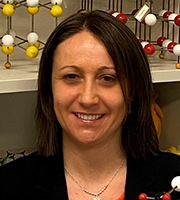 Raffaella Demichelis, Curtin University, Australia
Raffaella Demichelis, Curtin University, Australia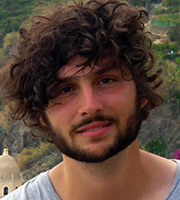 Paolo Sossi, ETH Zürich, Switzerland
Paolo Sossi, ETH Zürich, Switzerland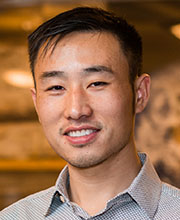 Kun Wang, Washington University in St. Louis, USA
Kun Wang, Washington University in St. Louis, USA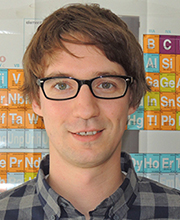 Stefan Lalonde, CNRS / Institut Universitaire Européen de la Mer, France
Stefan Lalonde, CNRS / Institut Universitaire Européen de la Mer, France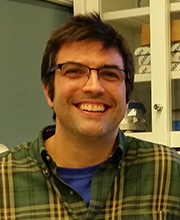 Morgan Schaller, Rensselaer Polytechnic Institute, USA
Morgan Schaller, Rensselaer Polytechnic Institute, USA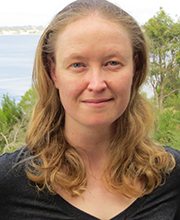 Julie Prytulak, Imperial College London, UK
Julie Prytulak, Imperial College London, UK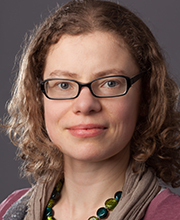 Kate Hendry, University of Bristol, UK
Kate Hendry, University of Bristol, UK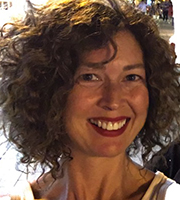 Caroline Peacock, University of Leeds, UK
Caroline Peacock, University of Leeds, UK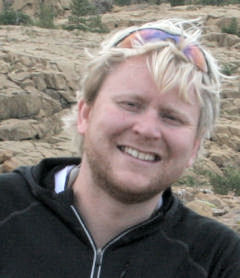 James Day, Scripps Institution of Oceanography
James Day, Scripps Institution of Oceanography